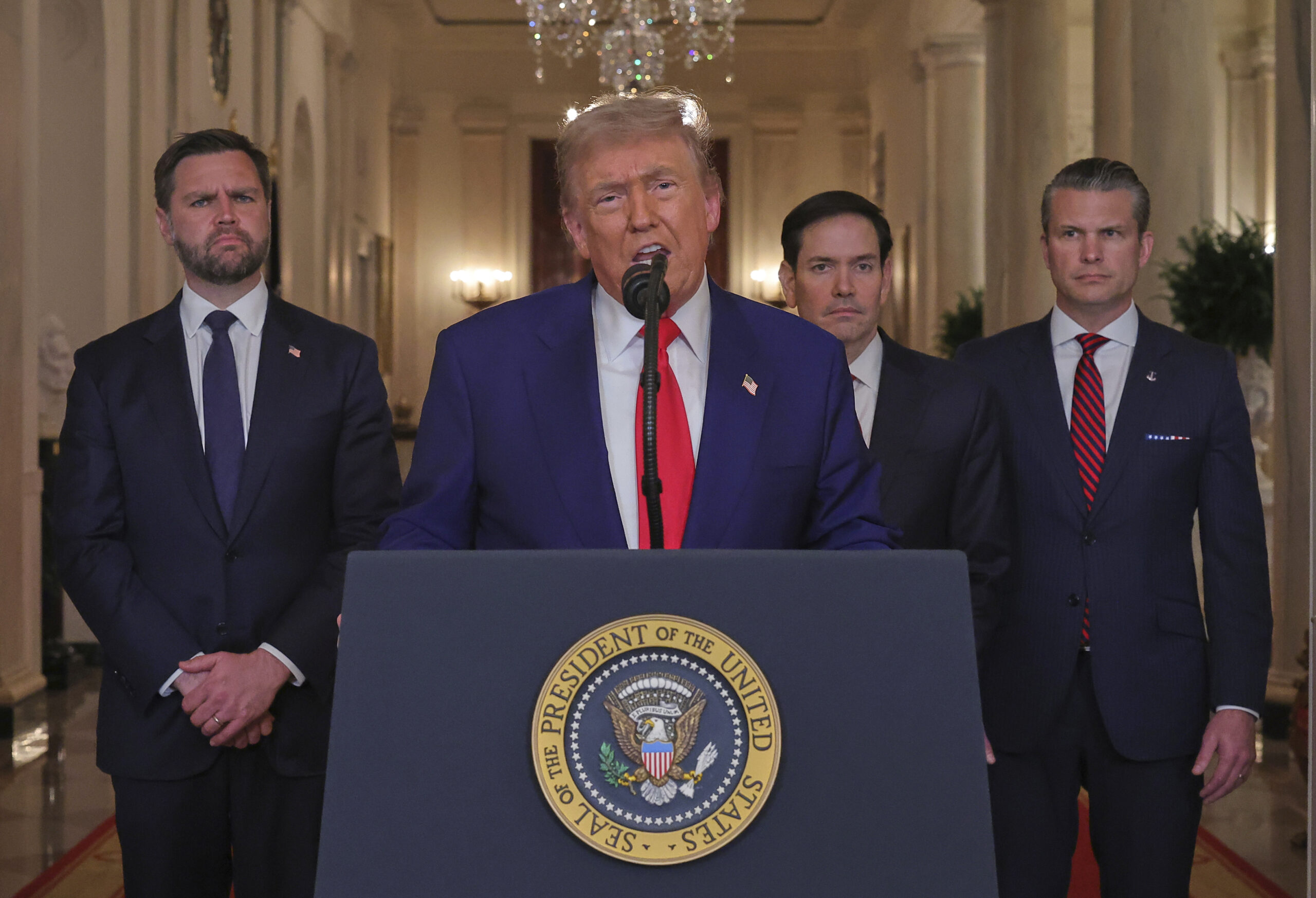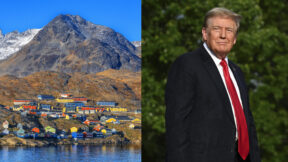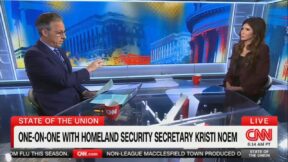The Iranian Nuclear Strike Was Donald Trump’s Finest Hour

(Carlos Barria/Pool via AP)
On Saturday night, the United States military struck three Iranian nuclear facilities in a daring operation President Donald Trump deemed a “spectacular” success that had “completely and totally obliterated” their targets.
On Sunday morning, Chairman of the Joint Chiefs of Staff Dan Caine sounded an only slightly less triumphant note, but nevertheless confirmed that the operation had caused “extremely severe damage” to the nuclear sites at Fordow, Natanz, and Isfahan.
In the days to come, the extent of that damage will become more clear, but right now, one thing is clear: In his finest hour yet as commander-in-chief, Trump greenlit a well-developed plan to carry out a righteous operation to make the world a safer place.
The specter of the Iranian regime developing the capability to lob nuclear warheads at New York or Tel Aviv was the stuff of apocalyptic nightmares. So too was the specter of it providing one of its terrorist proxies with dirty bombs to detonate in major cities across the world. An atomic Iran would have represented an imminent threat to millions of lives, and the existence of the country Trump is sworn to protect and defend — not to mention the Jewish people.
One need not take Trump or anyone else’s word for it. The Iranian regime has long referred to the United States as the world’s “Great Satan,” and its ally, Israel, as the “Little Satan.” After former President Barack Obama struck his toothless nuclear deal with the Iranians in 2015, Supreme Leader Ali Khamenei hurriedly declared that “I say that you [Israelis] will not see the coming 25 years and, God willing, there will not be something named the Zionist regime in next 25 years,” and reveled in chants of “Death to America!” as he pledged to continue to oppose American interests in the Middle East, i.e., continue to aid and abet murderous terrorists in the region and across the globe.
At the time, Secretary of State John Kerry called Khamenei’s rhetoric “disturbing,” but otherwise shrugged it off. The ayatollah’s words, which accurately reflected the deranged theology underpinning his evil regime, were inconvenient to his boss’s objective of scoring a pyrrhic foreign policy victory before he left office. And so, to their everlasting shame, they ignored them.
Khamenei and his cronies are radical “Twelver” Shia Muslims who believe that the destruction of the Great and Little Satans are prerequisites for the reappearance of the Mahdi, the Shia messiah. This belief, not cold, realpolitik considerations is what underpins almost everything the Iranian regime does. They are fanatics every bit as dangerous as Osama bin Laden and his imitators.
To his everlasting credit, Trump recognized as much and did the only thing that he could to protect the lives of his countrymen, their allies, and millions of others around the world: he acted.
The act he sanctioned comes with no shortage of risks. In geopolitics, every decision any leader — but especially one as powerful as the American president makes — creates ripple effects that will be felt for years to come. Every reasonable proponent of an assertive foreign policy will readily admit to as much.
What the restrainers in the Obama-Biden foreign policy establishment and far-right invariably fail to acknowledge, though, is that the decision not to act comes with just as many, and oftentimes far less desirable consequences.
In this instance, Trump acknowledged the immutable nature of an American enemy, grappled with untenability of it producing weapons of mass destruction, developed a plan for preventing it from doing so, and accepted the risks that came with executing said plan.
For that, he deserves only unqualified praise and gratitude.
This is an opinion piece. The views expressed in this article are those of just the author.





Comments
↓ Scroll down for comments ↓